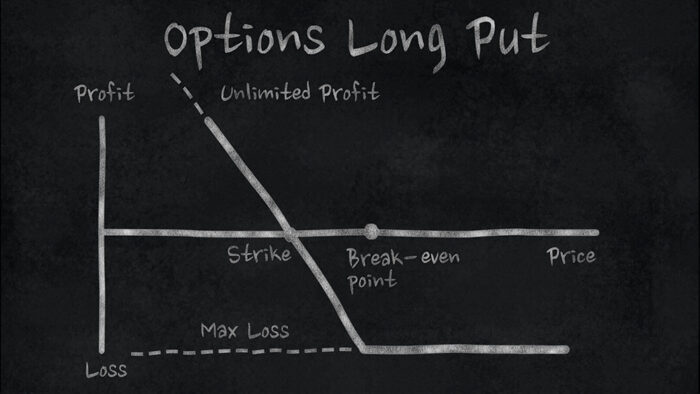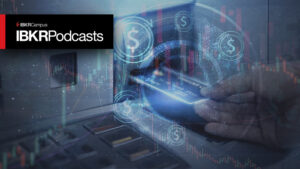IBKR’s senior economist, Jose Torres, used to work at the FDIC. He offers a helpful perspective about the ramifications of and reactions to the recent bank failures in this discussion with Andrew Wilkinson, IBKR’s director of education, and Steve Sosnick, its chief strategist.
Summary – IBKR Podcasts Ep. 65
The following is a summary of a live audio recording and may contain errors in spelling or grammar. Although IBKR has edited for clarity no material changes have been made.
Andrew Wilkinson
Welcome to this week’s market and economic podcast with me, Andrew Wilkinson. I’m joined by Interactive Brokers, senior economist Jose Torres. But I want to start with our chief strategist, Steve Sosnick. Welcome to you both, gentlemen. Steve, we saw a classic bank run last week and despite unprecedented measures to shore up depositors, we’re seeing heavy selling in regional banks and a spike in the VIX. What’s your two-minute explanation of the markets’ reaction and why?
Steve Sosnick
There are certain times, Andrew, when you when return of capital, far outweighs concerns about return on capital. Most of the time investors are concerned with how they can best employ their capital to make returns given their risk tolerance and mandates if they’re institutional. On the other hand, there are certain times where just the risk concerns outweigh everything, and certainly, if you have money in the bank, the last thing you want to happen to it is for any of it to go away. You’re earning a still small rate of return and people got very concerned that they were actually going to lose some of their deposits. That concern has abated, and I’ll let Jose get into some of the details of how the FDIC works and the bank insurance, but now you still have this visceral concern among stock and bondholders of a lot of regional banks that their capital is at risk and bondholders don’t get full recovery on their assets. Stockholders are really left out. Stockholders get nothing. So, while it’s nice that we can assuage depositors, which might actually put a halt to some of these bank runs on the fears that their deposits will be good. We’re essentially still seeing something similar occurring by bondholders and stockholders who don’t want to be left holding the bag. And I’ll let Jose pick it up in terms of some of the mechanics.
Jose Torres
So, banks were hit with a flood of deposits during 2020 and 2021, consistent with liquidity injections from both fiscal and monetary authorities. When these banks received all these deposits, on the opposite side it has to be an asset, so that’s either a loan or a bond. So, some of these banks, like SVB, had a lot of trouble issuing loans, so what they did was they went long-term duration treasuries and mortgage-backed securities. When inflation picked up steam in 2022, those securities dropped in value significantly because yields went up. You know, the 10 year went from around 1% up to over 4, almost 4 1/2%, mortgage-backed securities have a similar correlation to the 10-year. So, those banks that didn’t hedge long-term duration bonds, those happen to be in big trouble. When I was at the FDIC, there was a lot of emphasis on managing interest rate risk across the duration curve. So having bonds that expire one-year, two-year, three-year, five-year, 10 year, it seems like it’s not going on at a lot of these regional banks. I think the next shoes to drop will be office real estate, which has been hit with the one-two punch of higher interest rates as well as increased work from home. So whatever regional banks have a lot of exposure there, may have some trouble. We’ve already seen Blackstone and PIMCO fumble a little bit with their payments. Most of those payments in office real estate happen to be adjustable rates, so as rates go up, those mortgage payments go higher. And then of course on the demand side, work from home has weighed on office real estate and then also you have auto loans, so regionals that have exposure to a lot of auto loans could be in some trouble. We’ve seen those delinquencies increase and credit cards as well.
Steve Sosnick
If I may, let me just explain the concept of duration because that’s an interesting one because duration, we all think of it in terms of time. What is the duration of this podcast for example? But duration in a bond market context measures the sensitivity of the bond price to changes in yield. So, the duration of a bond may not actually be its time to maturity. It’s certainly proportional to it. And so, when you have short duration liabilities, deposits, essentially zero duration, and you have longer duration assets, whether they be publicly traded bonds or loans of some sort that are on the book, that’s a duration mismatch. And that’s particularly nasty when you have an inverted yield curve. Your short duration liabilities cost you more potentially than your long duration assets, which are getting marked down on a mark-to-market basis. Long winded, that’s a lot of two-minute that we’ve taken five minutes to answer two minutes, but I think that’s important.
Jose Torres
And also, Steve just a simple way to explain what banks do, they borrow short and they lend long and hedging that time differential is very important.
Andrew Wilkinson
So, Jose let me bring it back to you. The Fed Funds futures last week – we’ve had a massive change in expectations just heading into an FOMC meeting next week – Fed funds futures went from a 70% chance of a half percentage rate rise to a 25% chance of no hike. What’s your take on it?
Jose Torres
The Fed is going to have some difficulty managing inflation and financial stability. We saw some other central banks earlier last year and early this year deal with the same phenomenon. I think that the Fed is going to increase by 25 basis points. I think they want to be sympathetic to financial stability while also remaining firm on inflation. Several times already, inflation has come down in the short term, the Fed lowers their tone a little bit, it takes it a little easy and then financial conditions loosen and inflation reaccelerated. So, I think that history cautions, like Fed Chairman says against prematurely declaring victory on the inflationary front. I think they go with 25bps. Fed chairman last week in Congress left the door open for a 50 basis point rise. So, I think 25 basis points is that sweet spot where you show some sensitivity to financial stability, but also let the market know, hey, the inflation battle isn’t over yet.
Andrew Wilkinson
So will inflation, both consumer price inflation or producer price inflation reports this week even matter? Will the deflationary effects of wiping out SIVB and SBNY stock and bondholders allow the Fed to back off or not?
Jose Torres
I think the reports matter because the reports show February and our in-house models show that February inflation reading actually came in pretty hot. So, March inflation, which we get in April, is going to come in a little cooler based on what I’m seeing right now. But February inflation readings are still going to come in hot. So, I think the market tomorrow and Wednesday will have to really decide what it is that it wants to do due to a Fed that is going to continue to want to suppress inflationary pressures, while at the same time doesn’t want to damage important institutions in the United States.
Andrew Wilkinson
Steve, does this change the strike price on that supposed Fed put?
Steve Sosnick
At some level, we can actually almost argue that the Fed put was implemented. By extending the Deposit Insurance to infinity, that’s one form of it. The one thing I always want to get across to stock investors, is the Fed put isn’t about you. It sounds like a classic dating problem. It’s not you, it’s me. It’s not about you. This has nothing to do with equity investing. Remember, the Fed has the dual mandate of stable prices and full employment. Realistically, they have a triple mandate because they have to maintain the soundness and security of the banking system. To the extent that they maintain that soundness and security, that may be part of the Fed put. Do they really get concerned about equities? Equities are a side effect. If you’ve got a banking crisis or a financial crisis, equities are going to suffer. But they’re not doing this to prop up the stock market. They’re doing it to make sure the banking system doesn’t clog up. I don’t want to think in terms of those in that specific term of the Fed put is struck at 3600 on S&P. It’s just not designed that way.
Jose Torres
And another thing, the Deposit Insurance fund, a lot of folks are talking about how this doesn’t impact taxpayers. Well, it kind of does indirectly through the Deposit Insurance Fund as those funds get depleted in order to rescue problem banks. That does weigh on lending and bank profitability. So, it does decrease economic activity in aggregate. The same way an increase in taxes would.
Andrew Wilkinson
Great discussion. Thank you both Jose Torres, down in our West Palm Beach Office and Steve Sosnick, live in person with me in the studio here. Don’t forget to check online for the all-new Interactive Brokers educational campus at IBKR campus.com, where you’ll find market insight from both Jose Torres and Steve Sosnick, along with a full lineup of podcasts, webinars, and financial education. Thanks for listening and bye for now.
Disclosure: Interactive Brokers
The analysis in this material is provided for information only and is not and should not be construed as an offer to sell or the solicitation of an offer to buy any security. To the extent that this material discusses general market activity, industry or sector trends or other broad-based economic or political conditions, it should not be construed as research or investment advice. To the extent that it includes references to specific securities, commodities, currencies, or other instruments, those references do not constitute a recommendation by IBKR to buy, sell or hold such investments. This material does not and is not intended to take into account the particular financial conditions, investment objectives or requirements of individual customers. Before acting on this material, you should consider whether it is suitable for your particular circumstances and, as necessary, seek professional advice.
The views and opinions expressed herein are those of the author and do not necessarily reflect the views of Interactive Brokers, its affiliates, or its employees.










![[Gamma] Scalping Please [Gamma] Scalping Please](https://ibkrcampus.com/wp-content/smush-webp/2024/04/tir-featured-8-700x394.jpg.webp)







Join The Conversation
If you have a general question, it may already be covered in our FAQs. If you have an account-specific question or concern, please reach out to Client Services.